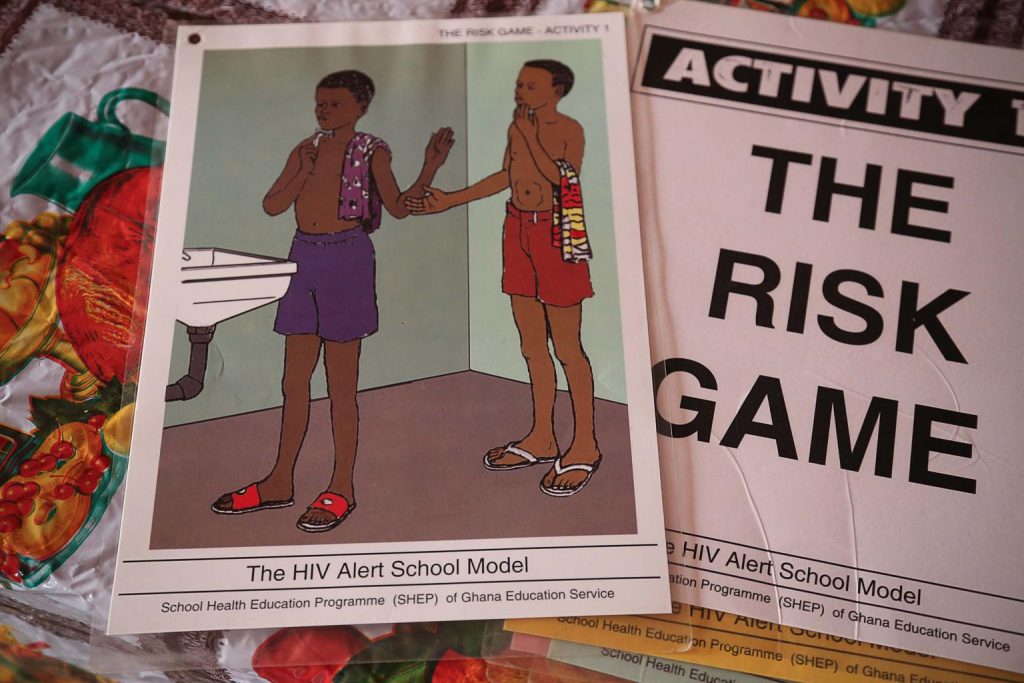To tackle HIV rates we must give a voice to people prevented from accessing treatment due to social stigma.
Briefing
It Isn’t Lack of Drugs Preventing Us Eradicating AIDS, But Inequality

(Sequence: 9 of 10) The HIV Alert School Model is designed to incorporate HIV prevention education in the basic education curricula of schools in Ghana. Here are some samples of the materials used for the teacher and student-led pillars.
Activities under each pillar reinforce each other in order to ensure that the school child acquires the information, life skills and competence to reduce his/her risks and vulnerability to HIV. The skills the children will develop are expected to equip them to deal effectively with present adolescent challenges and those of the future as adults.
Although Ghana has a relatively low HIV prevalence at 1.3 per cent , only one third of adolescents aged 15-19 have comprehensive knowledge of HIV , which puts young people in this age group at high risk of HIV infection. Therefore, HIV and AIDS education in this important stage of childrenÕs life is key to reduce their vulnerability to HIV infection.
To address this vulnerability, the Ghana Education Service in implementing the HIV Alert School Model in junior high schools (pupils aged 13-16) across the country. Launched in 2006, the Model was developed with the support of UNICEF and piloted in one district in Upper East region before being rolled out country-wide.
The Alert Model is design to incorporate HIV education in the existing school curriculum. It seeks to mobilise teachers, school children, and the school community on HIV prevention education as an integrated package. Each group constitutes a ÔpillarÕ.
Related content
Evidence review
Rapid evidence synthesis: Mpox community protection
This note presents a rapid synthesis of evidence related to community protection in countries affected by the mpox clade 1b outbreak. Synthesising evidence related to community protection for mpox Medline, Africa Journals Online and Global Index Medicus were searched. IFRC,…
SSHAP
2025
Report
Meeting report: The impact of global aid funding cuts on people and programmes in South Sudan
Report of a roundtable with government actors, academics, development partners and journalists in South Sudan on the sweeping impacts on people and programmes of aid cuts and multiple, intersecting crises.
Central and East Africa Hub
SSHAP
2025
Briefing
Key considerations: Home-based care for mpox in Central and East Africa
This brief outlines key considerations on health system requirements for safe and inclusive home-based care for mpox.
Central and East Africa Hub
SSHAP
2025
Question Bank
Tools
Questions bank for healthcare workers during infectious disease outbreaks
This question bank is a menu of qualitative questions related to healthcare workers’ knowledge, perceptions and practices during infectious disease outbreaks.
SSHAP
2025


